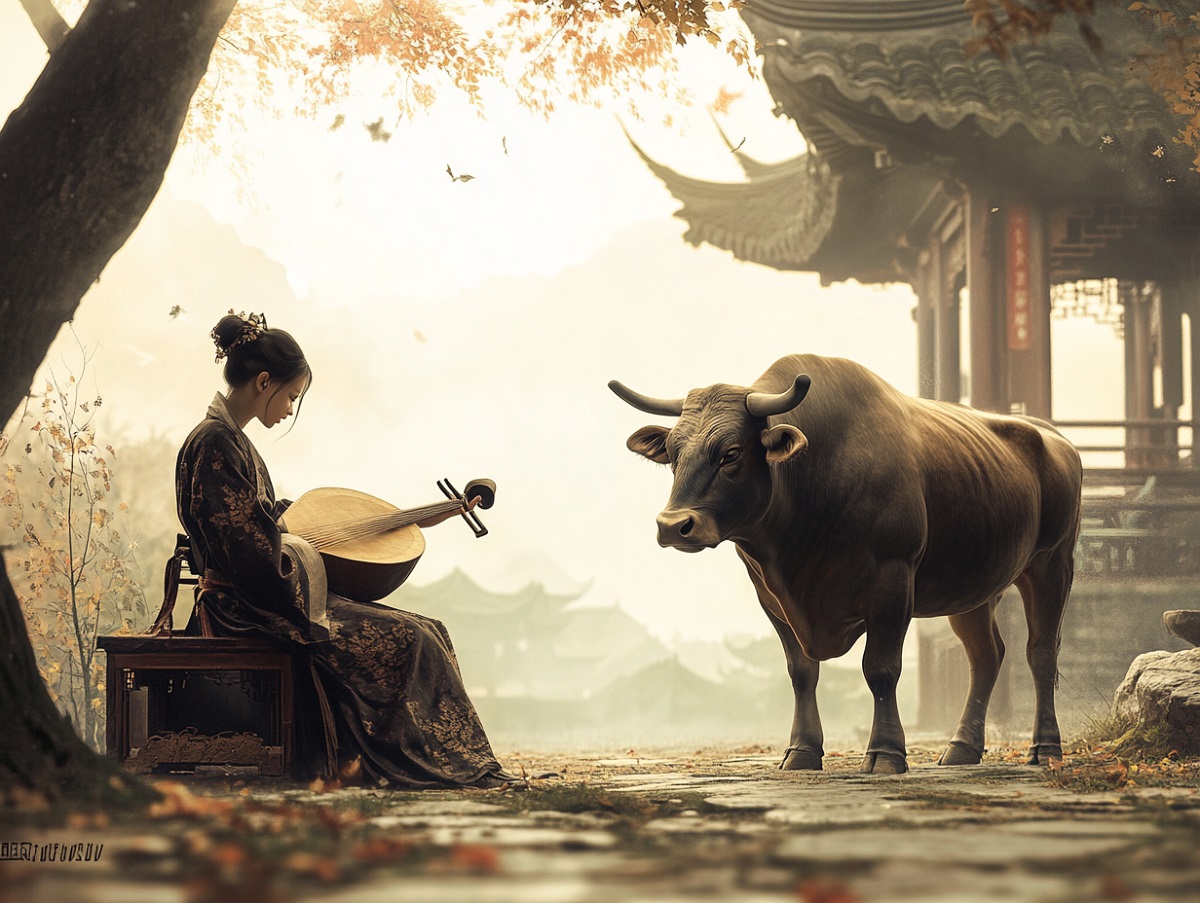
The Chinese language is full of rich, colorful expressions that often reflect deep cultural insights and quirky humor. Phrases like these add charm to conversations, but their literal translations can leave you scratching your head. In this blog post, we will expose, explain, and show you how to use five fun Chinese expressions like a pro. Whether you’re a language learner or just curious, these idioms will add a sprinkle of fun to your day.
1. 马马虎虎 (mǎ mǎ hǔ hǔ)
Literal Translation: Horse horse tiger tiger
Meaning: So-so; mediocre
This phrase might be used to describe something or someone as merely “meh” or “average.” The origin comes from a story about an artist who painted half a horse and half a tiger to symbolize ambiguity or sloppiness.
How to Use:
A: 你今天过得怎么样?(Nǐ jīntiān guò dé zěnme yàng?) – How was your day?
B: 马马虎虎吧。(Mǎ mǎ hǔ hǔ ba.) – It was so-so.
2. 对牛弹琴 (duì niú tán qín)
Literal Translation: Playing the lute to a cow
Meaning: Talking to someone who doesn’t understand or appreciate what you’re saying
This expression humorously describes the futility of trying to explain something to someone who either lacks the knowledge or interest to understand it. It’s a poetic way of describing the frustration of being misunderstood.
How to Use:
A: 我花了一个小时讲这个概念,他还是听不懂。(Wǒ huāle yīgè xiǎoshí jiǎng zhège gàiniàn, tā háishì tīng bù dǒng.) – I spent an hour explaining the concept, and he still doesn’t get it.
B: 哎,真是对牛弹琴。(Āi, zhēn shì duì niú tán qín.) – Ugh, it’s like playing the lute to a cow.
3. 吃醋 (chī cù)
Literal Translation: Eating vinegar
Meaning: Feeling jealous, especially in romantic contexts
This playful phrase likens the sourness of jealousy to the taste of vinegar. When someone is “eating vinegar,” they are distressed due to a perceived romantic rival or situation.
How to Use:
A: 你女朋友是不是在吃醋?(Nǐ nǚ péngyǒu shì bùshì zài chī cù?) – Is your girlfriend feeling jealous?
B: 她当然吃醋啦,我跟别的女生一起喝咖啡了。(Tā dāngrán chī cù la, wǒ gēn bié de nǚshēng yīqǐ hē kāfēile.) – Of course she is jealous. I had coffee with another girl.
4. 画蛇添足 (huà shé tiān zú)
Literal Translation: Drawing legs on a snake
Meaning: To add unnecessary details; to overcomplicate something
This is an ancient idiom taken from a fable about a person in a drawing competition who added legs to the picture of a snake, ruining it. It teaches us that unnecessary embellishments can ruin the whole effort.
How to Use:
A: 我觉得这个设计太复杂了。(Wǒ juéde zhège shèjì tài fùzále.) – I think this design is too complicated.
B: 对啊,别画蛇添足。(Duì a, bié huà shé tiān zú.) – Exactly, don’t add legs to the snake.
5. 吹牛 (chuī niú)
Literal Translation: Blowing a cow
Meaning: Bragging; boasting
This fun expression humorously describes someone inflating their ego, much like “blowing hot air.” Use it to call out someone who’s exaggerating their achievements.
How to Use:
A: 他刚刚说自己爬了珠穆朗玛峰。(Tā gānggāng shuō zìjǐ pále Zhūmùlǎngmǎfēng.) – He just said he climbed Mount Everest.
B: 他肯定是在吹牛。(Tā kěndìng shì zài chuī niú.) – He’s definitely bragging.
Why Learn These Expressions?
Chinese idioms and colloquialisms are not only fun, but they also give you a deeper understanding of the culture and people. Mastering how to use them will make you sound more natural and relatable in your spoken Chinese, and they make excellent conversation starters!
Which of these idiomatic expressions do you like best? Heard any other weird and wonderful Chinese phrases? Let me know in the comments below!



